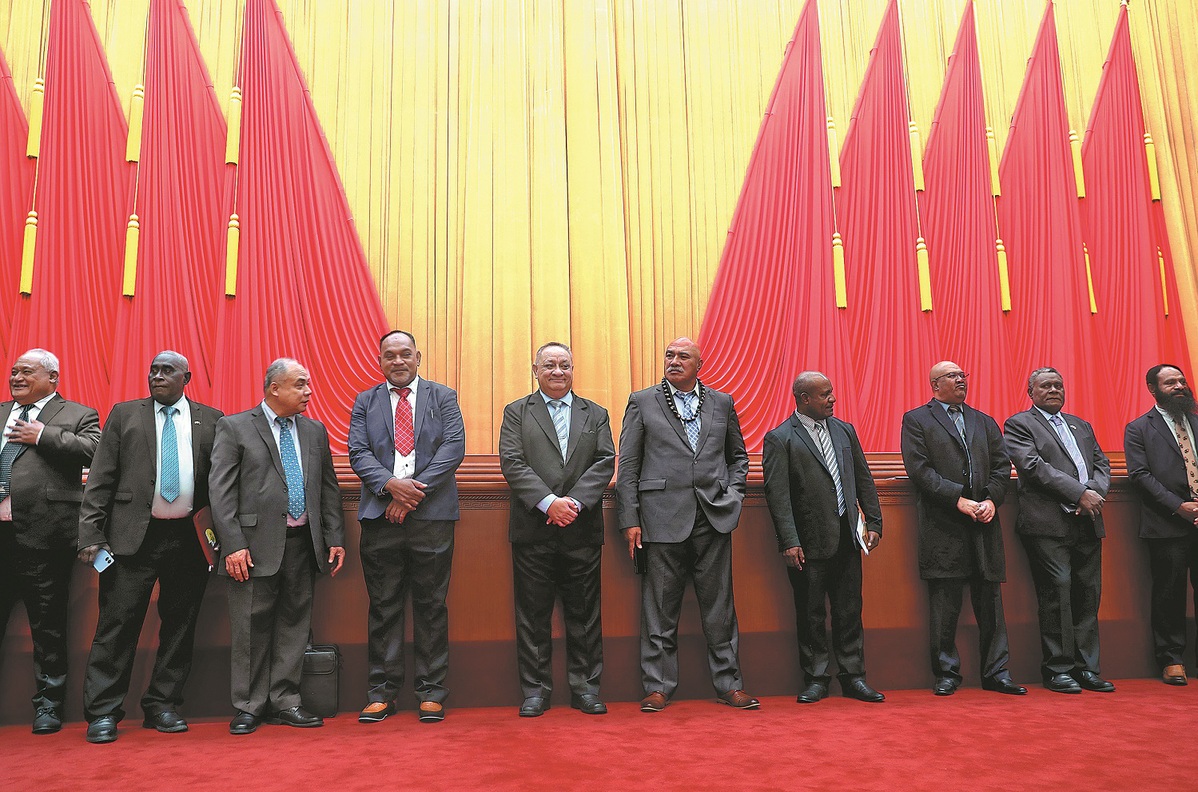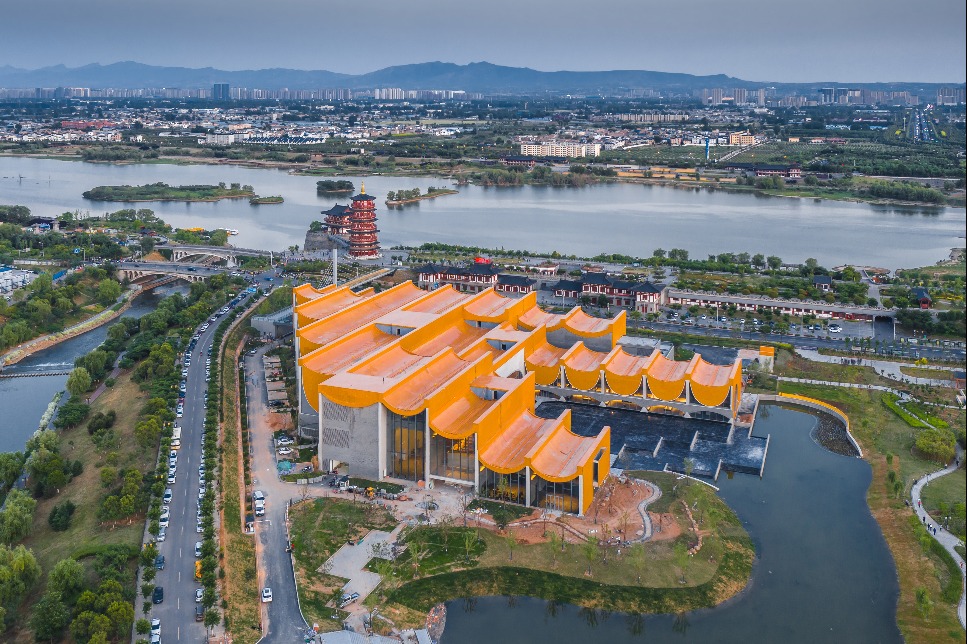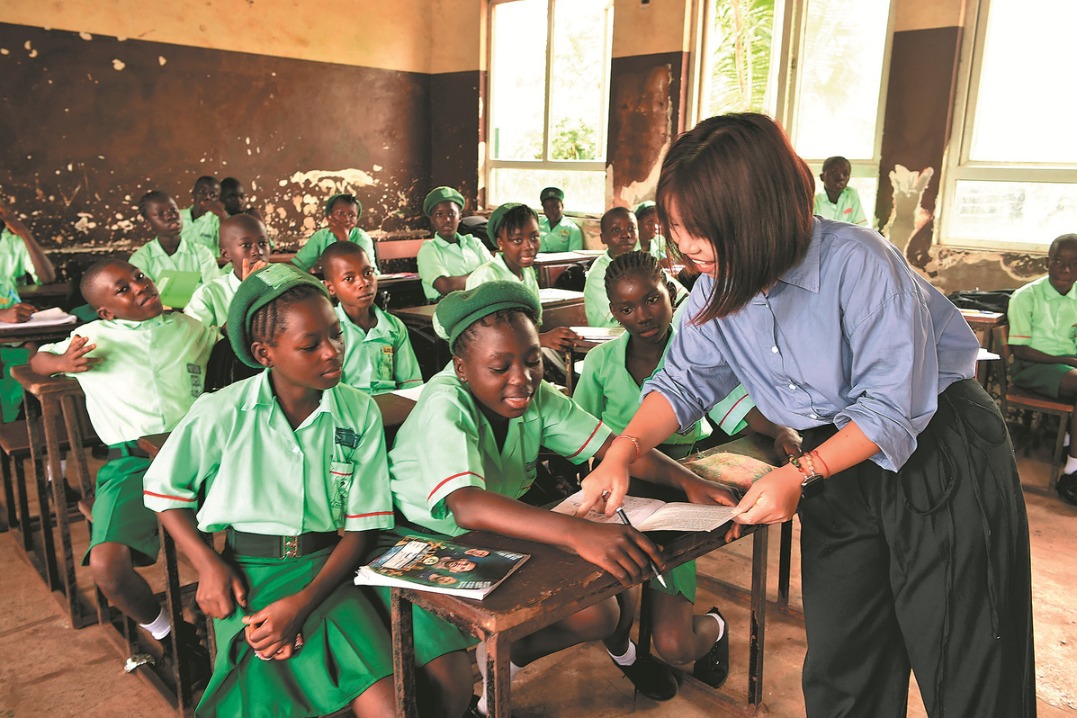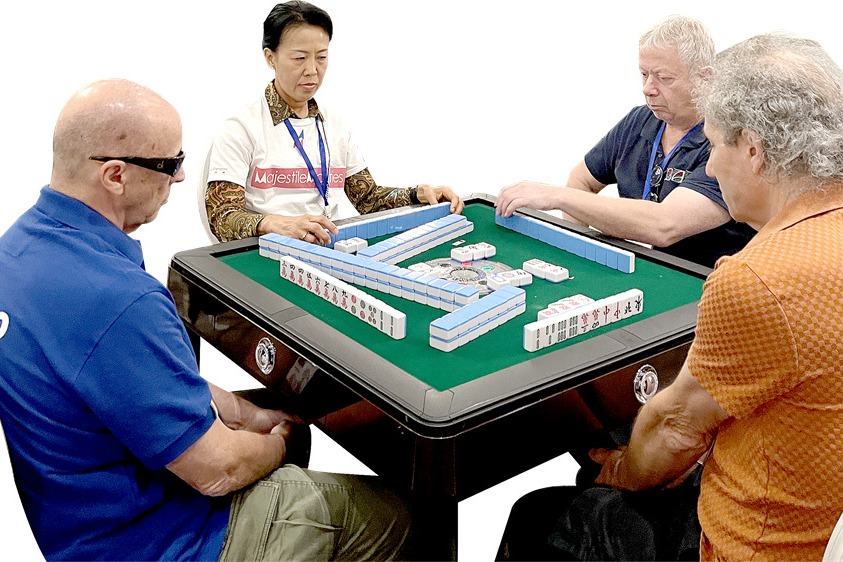Legislative processes explained to Pacific Island MPs
By Cao Yin | China Daily | Updated: 2023-11-22 09:37

China's top legislature held a seminar on Tuesday with representatives from five Pacific Island countries on the practice of democracy in legislation, policymaking and social governance, with exchanges of ideas on how to better serve the people and promote development in a democratic way.
A total of 21 parliamentary representatives from Niue, Papua New Guinea, Samoa, the Solomon Islands and Tonga participated in the seminar, which was organized by the Standing Committee of China's National People's Congress in Beijing.
It was the first time a seminar has been held by the NPC Standing Committee for parliamentarians from Pacific Island countries.
Zhai Wei, an official from the NPC Standing Committee, introduced China's whole-process people's democracy to the parliamentarians, saying the democracy has a complete set of institutions and procedures, with wide participation and strong oversight.
He underscored that the connotation of democracy is not limited to the right to vote, "but people's extensive participation in the democratic election, consultation, decision-making, governance and supervision".
He used China's ongoing 14th Five-Year Plan (2021-25) as an example, adding that when it was formulated, the central leadership held seven meetings to learn and solicit ideas from various walks of life.
Xu Anbiao, deputy head of the NPC Standing Committee's Legislative Affairs Commission, shared how Chinese legislators collect legislative suggestions from the public and how Chinese people participate in lawmaking.
He cited a rule established in 2008 clarifying that all draft laws, in general, should be disclosed online to solicit public opinions before adoption, and the solicitation period should not be fewer than 30 days.
He revealed that as of June, 237 draft legislative items had been disclosed on the internet, receiving more than 3.91 million suggestions from the public.
"The disclosure and solicitation are the most convenient and extensive way for people to participate in legislation," he added. "It's also an important channel for the country to orderly expand public participation and promote transparency in lawmaking."
Joseph Yopyyopy, a parliamentarian from Papua New Guinea, praised the seminar, saying it provided a good opportunity to exchange ideas and learn more about democratic processes in China.
He said he was impressed by how the Chinese government listens to the opinions of the people and encourages wide participation both online and offline.
He added he wants to learn more about China's experience fighting and preventing corruption.
The parliamentarians will stay in Beijing for three days, where they will also discuss how to face climate challenges in keeping with sustainable development and how to realize common prosperity through high-quality growth.
They will visit Jiangxi and Fujian provinces from Thursday to Nov 28 to conduct further studies and exchanges.
























